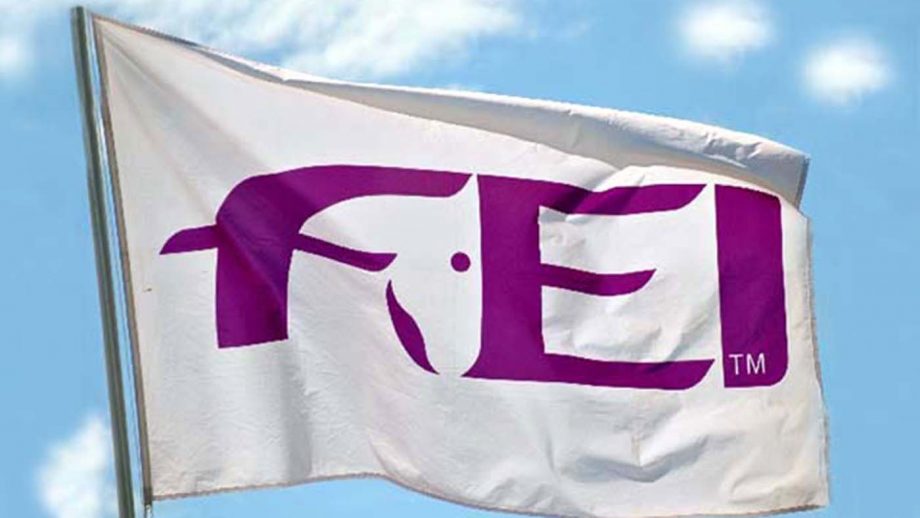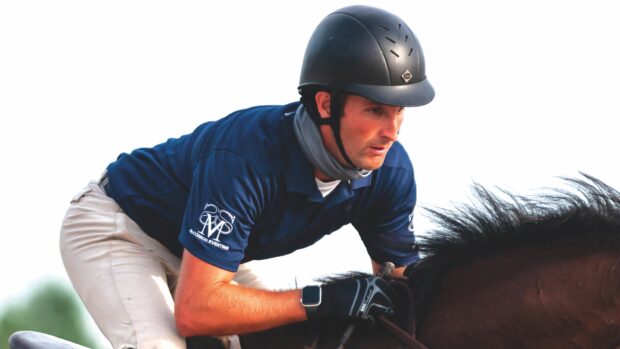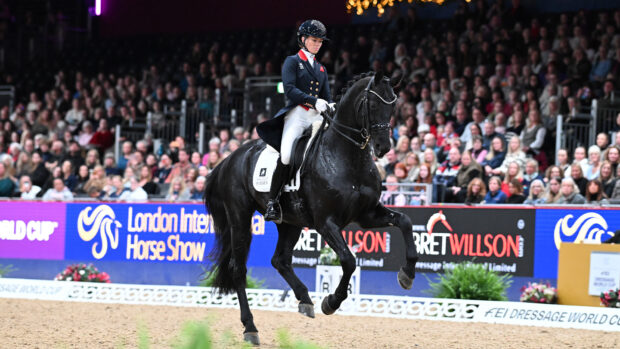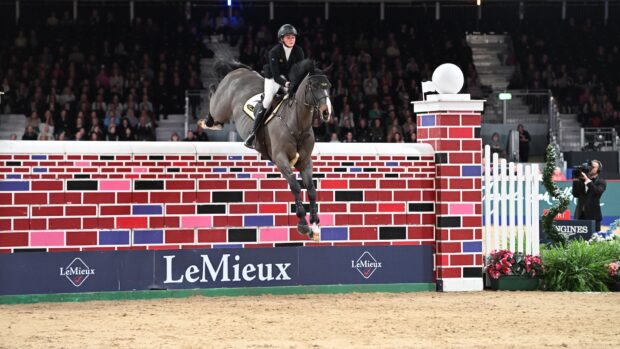The Russian equestrian federation (FESR) said there is “no evidence of a war in Ukraine” as it made an unsuccessful attempt to void its FEI blackout.
The FEI Tribunal has ruled on the FESR appeal against the cancellation of all FEI events in Russia and Belarus, and the banning of all athletes and officials from both countries from participating in FEI competition. At the time, the FEI said its board “condemns the invasion of Ukraine by Russian military forces and the support provided by the government of Belarus”, adding that the move was in line with International Olympic Committee (IOC) recommendations.
FESR appealed, claiming the decision was “politically discriminatory on ethnic grounds and contrary to the legal and ethical norms of the FEI rules and regulations”.
In its submissions, FESR claimed the FEI had violated its own statutes.
The FEI had acted under a rule stating that in an “emergency situation”, the FEI board can make decisions that would normally go to the general assembly, but FESR said: “There is no evidence that the alleged invasion of Ukraine by Russian military forces constitutes an “emergency basis”.
It added that there was no evidence that horse sport in Ukraine had been shut down or that Ukrainian riders’ lives were at risk, and that there was no FEI shutdown related to other recent conflicts “including between the US and Syria, Israel and Yemen, and Turkey and Cyprus”.
FESR said the ban was discriminatory and that there were no allegations of wrongdoing against itself or any Russian athletes or officials.
“When asked [in the Tribunal hearing] if the FESR would allow an individual athlete who was publicly against the war in Ukraine to compete as an individual athlete, the FESR replied that there was no legal basis for any sanctions, which also applies to an individual’s participation,” the Tribunal report reads. “The FESR also stated: ‘There is no evidence that there is a war in Ukraine.’”
The FEI said its board was satisfied an emergency situation existed, adding: “The circumstances relating to the invasion of Ukraine by Russian military forces have been widely reported and documented. The invasion met (and still meets) the definition of an emergency situation because it was (and remains) a serious situation or occurrence that happened unexpectedly and required immediate action, even when only viewed in the context of equestrian sport.
“The military action effectively had the effect of shutting down equestrian sport in Ukraine, placing the lives of Ukrainian athletes, officials and horses at risk and severely limiting, if not completely restricting, their ability to compete in FEI events. By adopting the resolution, the FEI board wanted to ensure the fairness and integrity of FEI events.”
It added that the IOC had urged international federations to ban Russians and Belarusians from events, which “reinforced the emergency nature of this situation and could not be ignored”.
No national federations objected within a timeframe set out by the rule in question so, the FEI said, the decision carries the same weight as any made at a general assembly. It added that had Russians been allowed to compete, other riders might have boycotted events, a concern especially for this year’s World Championships. Ukrainian riders may also withdraw, it said, rather than be judged by a Russian. The FEI also wrote to all registered Russian and Belarusian riders and officials.
The Tribunal panel said the conflict, and events such as “cluster bombs landing on an apartment building” are “difficult to ignore”, adding: “These images are real and enough for this panel to state that a reasonable person would conclude that Russian military forces invaded Ukraine and the war is ongoing.”
The panel found the criteria for the FEI’s decision had been met, and that not banning Russian and Belarusian riders and officials would undermine events’ integrity.
“The resolution further prevents the possibility that FEI events are used as a political platform,” the panel said. “FESR suggested the FEI was mixing politics with sport when it adopted this resolution. However, we have actual examples of prominent Russian athletes wearing the symbol Z as a sign of support for Russia’s invasion of Ukraine. This is mixing politics with sport with an enormous megaphone. This panel states that FEI events cannot be used as a political platform.”
The panel dismissed the appeal and ordered FESR to pay 3,000 CHF (£2,485) in costs.
You might also be interested in:

Russian and Belarusian riders, horses and officials to be banned from international horse sport ‘until further notice’

FEI cancels horse sport in Russia, plus £800k relief fund for Ukraine’s equestrian community

Subscribe to Horse & Hound magazine today – and enjoy unlimited website access all year round
Horse & Hound magazine, out every Thursday, is packed with all the latest news and reports, as well as interviews, specials, nostalgia, vet and training advice. Find how you can enjoy the magazine delivered to your door every week, plus options to upgrade your subscription to access our online service that brings you breaking news and reports as well as other benefits.




